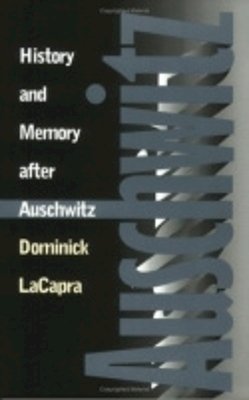8%OFF

Stock image for illustration purposes only - book cover, edition or condition may vary.
History and Memory After Auschwitz
Dominick Lacapra
€ 31.99
€ 29.46
FREE Delivery in Ireland
Description for History and Memory After Auschwitz
Paperback. Num Pages: 232 pages, 6. BIC Classification: HBAH; HBJD; HBTZ1; HBWQ; JMAF. Category: (P) Professional & Vocational; (UP) Postgraduate, Research & Scholarly; (UU) Undergraduate. Dimension: 228 x 152 x 15. Weight in Grams: 322.
Read more
The relations between memory and history have recently become a subject of contention, and the implications of that debate are particularly troubling for aesthetic, ethical, and political issues. Dominick LaCapra focuses on the interactions among history, memory, and ethicopolitical concerns as they emerge in the aftermath of the Shoah. Particularly notable are his analyses of Albert Camus's novella The...
Product Details
Publisher
Cornell University Press United States
Number of pages
232
Format
Paperback
Publication date
1998
Condition
New
Number of Pages
232
Place of Publication
Ithaca, United States
ISBN
9780801484964
SKU
V9780801484964
Shipping Time
Usually ships in 7 to 11 working days
Ref
99-1
About Dominick Lacapra
Dominick LaCapra is Bryce and Edith Bowmar Professor in the Humanities, and Director of the Society for the Humanities, at Cornell University. He is the editor of two books and the author of nine books published by Cornell, including Representing the Holocaust.
Reviews for History and Memory After Auschwitz
LaCapra demands that we not shy away from making judgments and applying to scholarly research and teaching a rigorous and normative code of ethics, one that not only transforms the institutions in which we work, but also facilitates communication between those within and outside the academy. It is refreshing to be reminded of this by LaCapra in such eloquent language....
Read more